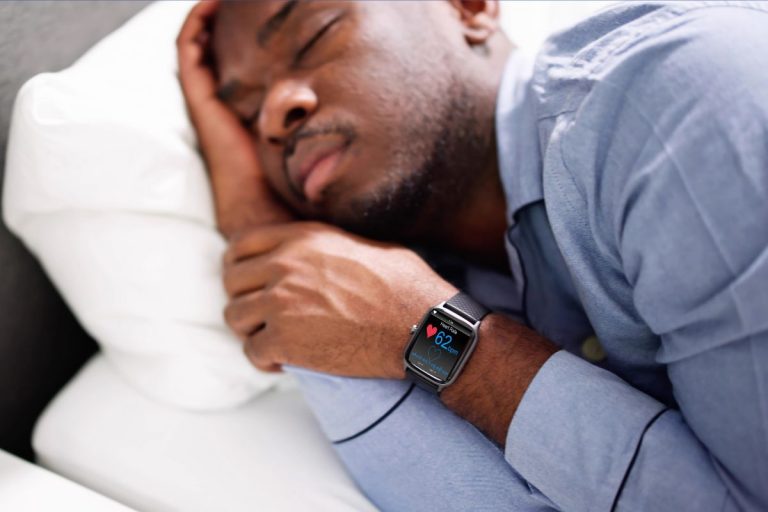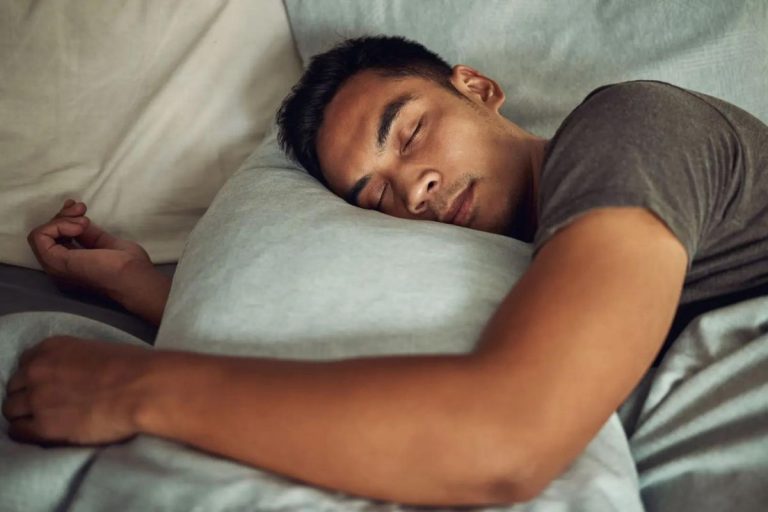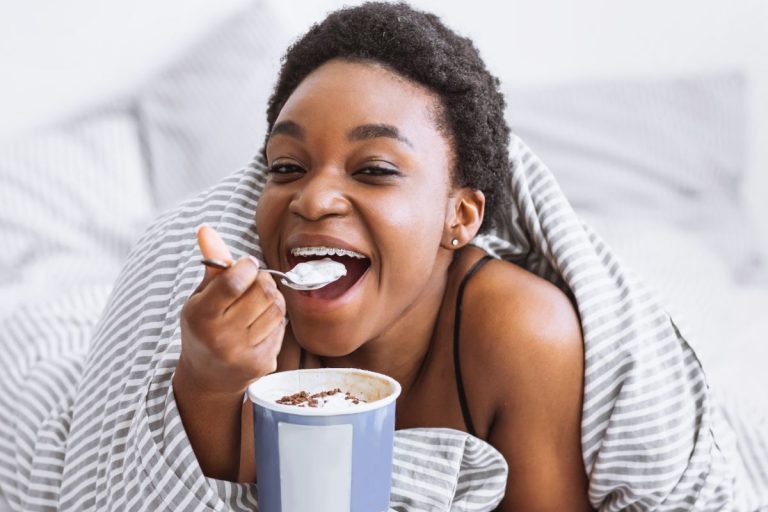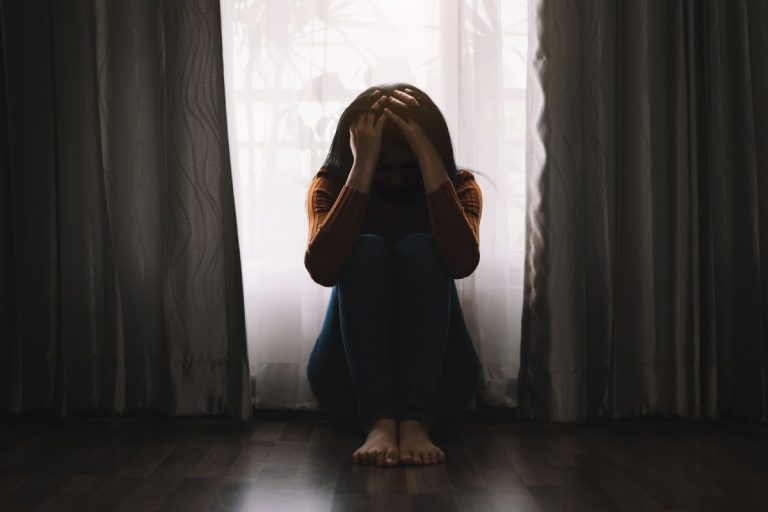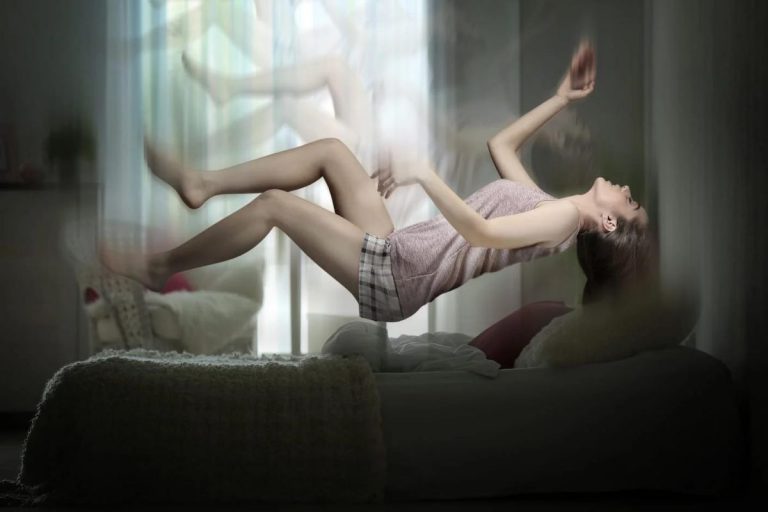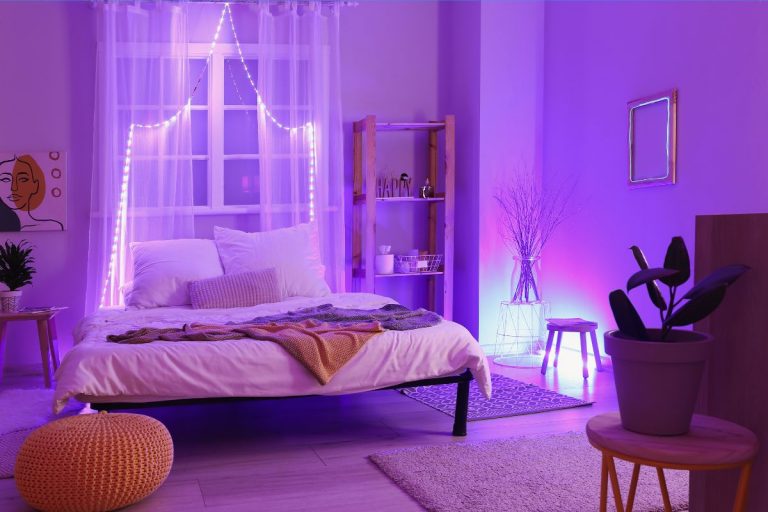Truth is that many people turn to alcohol when they can’t fall asleep. Alcohol has sedative effects and may help you fall asleep, but those are only the short-term effects.
The long-term effects show that using alcohol for sleep is the worst thing you can do, because it may help you fall asleep, but not stay asleep. That is when people turn to supplements, like melatonin.
It also has sedative effects and is more natural, with less or no side effects. But, what happens when people mix those two, trying to get even better results? Well, we’re here to find that out, so let’s get started!
Melatonin Overview
Melatonin As A Sleep-Regulating Hormone
Melatonin is a hormone, naturally produced by our brain. Its main role is that of helping us fall and stay asleep. Melatonin is produced from tryptophan in the pineal gland, and from there it is also responsible for the production of several other hormones.
Because melatonin is a serotonin-derived hormone, it’s function is to also not only help us fall and stay asleep, but also to regulate our sleep-wake cycle or the circadian rhythm.
This means it regulates when you’ll stay awake, and when you’ll feel sleepy and fall asleep. Melatonin is generally produced in the darkness, so it is essential to stay away from TV and gadgets before bedtime.
Melatonin As A Supplement
Some people tend to lack melatonin due to a certain, unhealthy lifestyle or some external factors.
For example, exposure to artificial light or a sedentary lifestyle can lower or completely halt the natural melatonin production. That is why people experience sleep deprivation, and in turn, have to take melatonin supplementation.
Often, people mix the supplements with alcohol, in the hope that sedative effects will be emphasized. That is generally referred to as abuse of supplementation, which can result in adverse health effects.
More Resources on Melatonin:
- Can You Overdose On Melatonin?
- Can Melatonin Cause Nightmares?
- Valerian Root, Melatonin and Magnesium: What‘s The Best One
- Side Effects Of Melatonin: 8 Groups Should Avoid Taking Melatonin
Melatonin And Alcohol Interaction
Because melatonin is produced in our bodies naturally, people generally don’t have any issues taking melatonin supplements. However, just like with any other medical supplementation, there can be cases of abuse, which does cause adverse health effects. So, it is important to take melatonin supplements safely and responsibly. Now, taking melatonin with alcohol is far from safe and responsible.
Taking melatonin with alcohol doesn’t mean the sedative effects will get emphasized. It is quite contrary; alcohol diminishes and interferes with the effects of melatonin supplements completely. It takes over the melatonin and interrupts the sleep/wake cycle. And, this is just the beginning of the adverse side effects of melatonin and alcohol interaction. Let’s take a look at the way this interaction affects you negatively;
Melatonin And Alcohol Interaction Side Effects
- Breathing Difficulties – drinking alcohol while taking melatonin supplements can cause the muscles in the throat to lose their tightness and functionality, making them work against you. This means that the muscles and the tissue in the throat can loosen up and make the throat to close, causing breathing difficulties. If you’re someone who already experiences breathing issues, or you have obstructive sleep apnea, this can pose quite a health danger.
- Heart Rate and Cardiac Function Issues – the combination of melatonin and alcohol can have significant effects when it comes to the heart rate and cardiac function. Studies show that this combination can lead to a significant decrease in heart rate and affect the physiological function of the heart. This can be potentially dangerous for people who already experience cardiovascular issues, chronic heart failure, or congestive heart failure.
- Sleeping Troubles – even though melatonin is supposed to help you fall and stay asleep, its interaction with alcohol can have the opposite effect. According to Dr. Nate Watson from SleepScore Labs, the combination of melatonin and alcohol causes frequent nighttime awakening, causing sleep deprivation and furthering insomnia issues. This can be dangerous for people who already experience sleep deprivation (which is the majority of people who take melatonin supplements).
- Other Symptoms – alongside the previous main symptoms, people who mix alcohol and melatonin can also experience drowsiness, dizziness, increased blood pressure, and increased anxiety.
Melatonin And Alcohol Interaction Complications
Beyond the main symptoms, the combination of melatonin and alcohol can cause some serious complications. One of the main reasons the complications occur is because both affect the liver’s ability to function and create essential enzymes. Here’s what else can happen;
- Redness and rashing in the face
- Swelling of hands, ankles, and feet
- Increased irritability and anxiety levels
- Fatigue and drowsiness
- Risk of falling
- Sudden unconsciousness or passing out
- Abnormally fast heartbeat
- Feeling cold and experiencing shivers
- Difficulty focusing, thinking, or concentrating
- Nightmares and vivid dreams
- Headache and nausea
Note: If you experience any of the aforementioned symptoms or complications, it is essential to see your doctor immediately. The complications can be incredibly dangerous, especially in cases of sudden passing out. You could fall and injure yourself, cause accidents, and injure yourself and others, both of which can result in severe injury or even death.
How To Take Melatonin If I Drink Alcohol?
Now, the aforementioned information is not supposed to scare you into stopping drinking completely. It is just essential you do NOT mix the supplementation with alcohol. But, there is nothing wrong with enjoying a drink or two, even though you take melatonin supplements. You just need to know how to do it without interfering with melatonin effects.
If you’re taking melatonin after drinking, it is essential you do it at least 2 to 3 hours after you had your last drink. Now, it takes melatonin up to 90 minutes to take effect, so make sure to consider that before you start drinking.
We don’t recommend you take melatonin before drinking, because there are high chances it will mix with alcohol and cause side effects and disturb your sleeping pattern for the night.
Can Melatonin Cause Side Effects On Its Own?
When people consider taking melatonin and alcohol together, they often worry about the possible side effects melatonin can have, rather than the side effects of the combination of the two. Truth to be told, even though it is considered safe, melatonin can have some negative side effects, often in cases of improper dosage. Here are some side effects you should be aware of;
- Nausea – one of the most common signs of melatonin side effects is nausea. It usually appears in people who take improper doses of melatonin supplements but can appear in people who just started taking melatonin.
- Daytime sleepiness and drowsiness – sleepiness and drowsiness are clear signs of melatonin side effects. Melatonin intake can make you sleepy and drowsy throughout the day, which can be potentially dangerous. People who have rather responsible jobs, like operating heavy machinery or working with people, should halt melatonin intake if they experience daytime sleepiness and drowsiness.
- Nightmares and vivid dreams – often referred to as ‘melatonin dreams’, nightmares and vivid dreams are common side effects of melatonin intake. High and frequent melatonin consumption can increase or disrupt nighttime brain activity. As a result, people experience frequent nightmares and extremely vivid dreams.
- Lower body temperature – when the brain naturally produces melatonin, it induces sleep together with lowering the body temperature. That is why when you’re sleepy, you often feel a bit cold. The same happens with melatonin supplements intake. However, an improper dosage can lead to even hypothermic effects, which can be dangerous.
Note: if you experience any of the aforementioned side effects, make sure to contact your doctor and check whether melatonin supplements are right for you.
Also, check whether your dosage is right because there might be a chance your dose is higher than it needs to be. Long-term high dose intake can result is some serious side effects, like blood sugar disruption, depression, and anxiety, frequent nausea, and headaches, etc.
How To Take Melatonin Properly?
To avoid side effects and interactions with other substances, it is essential to take melatonin properly. Here’s how you can do it (in accordance with your doctor’s recommendations, of course);
- If you’ve been drinking, make sure to take melatonin at least 2 to 3 hours after you had your last drink for the night.
- You should take melatonin at least an hour to 30 minutes before you go to bed.
- Melatonin supplements usually come in the form of tablets, which is the safest, most effective way to take melatonin. However, if this doesn’t suit you, try consuming melatonin-rich foods and beverages. But, beware that melatonin as a food additive might not be safe, so focus on natural and organic, melatonin-rich nutrition.
- If you’ve taken melatonin, try to stay away from TVs, phones, computers, and anything else that emits blue light. The blue light can interfere with the effects of melatonin and instead of sleepy, make you feel awake.
- Melatonin is known to affect ovulation, so it is not recommended that women who are trying to get pregnant take melatonin.
Final Thoughts
If you have any concerns about your sleep or lack of it, make sure to consult your doctor about melatonin supplements. Make sure to also discuss how melatonin interferes with other substances, and try to mention whether you drink alcohol.
The doctor will provide you with useful recommendations and tips on how to avoid the two to mix and cause negative side effects. We hope that our take on this topic was informative, but we do not know your particular situation, so talking to a doctor always helps.
